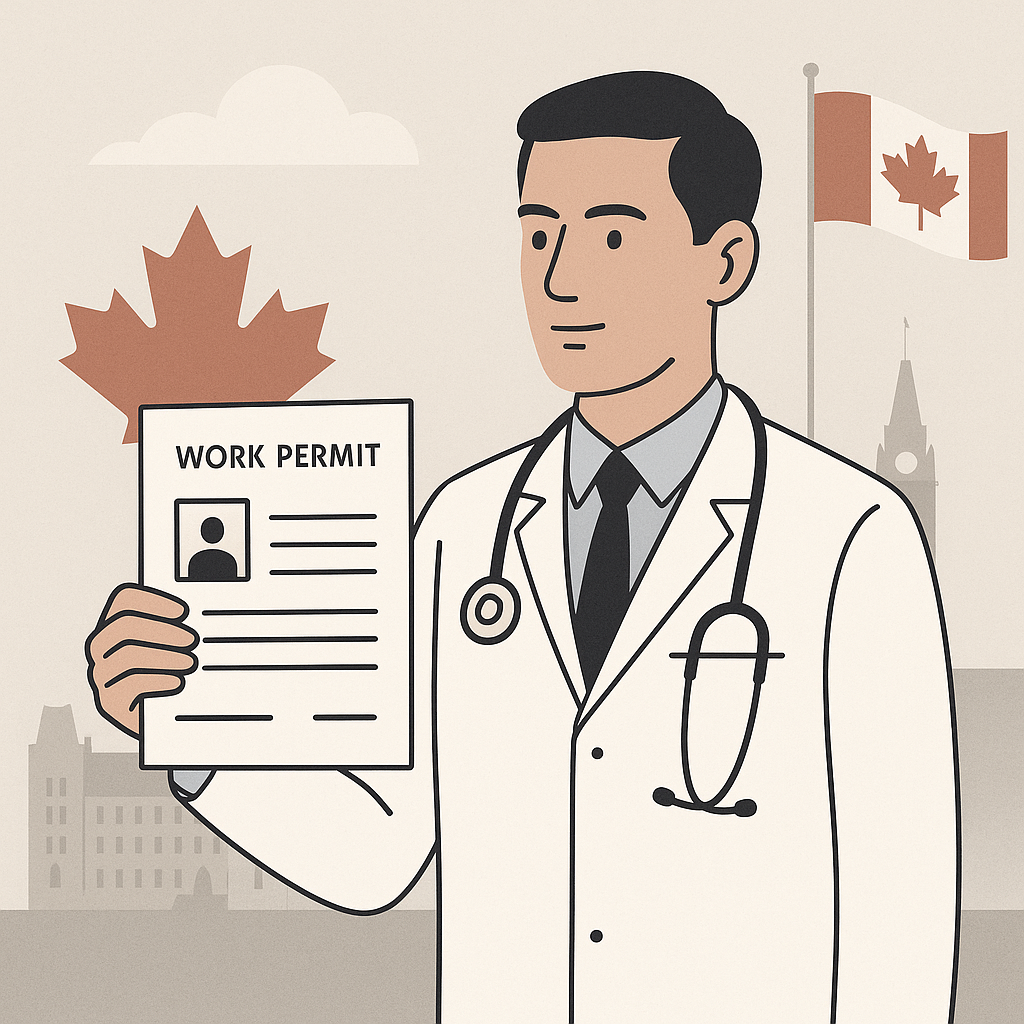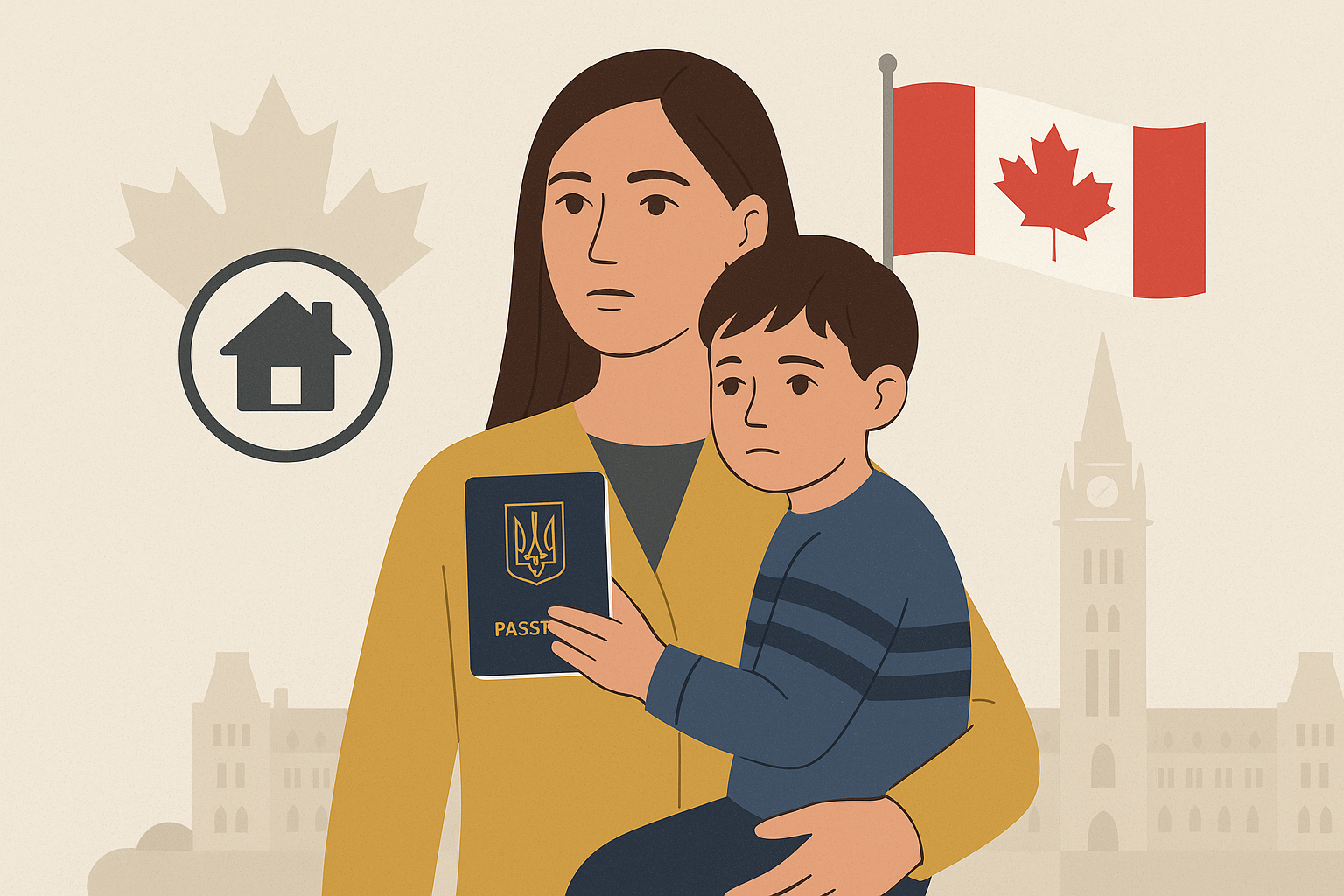
Effective 2025-07-31, IRCC allows eligible foreign physicians destined for Quebec’s underserved regions to use a single employer-specific C10 (R205(a)) work permit—covering the 13-week assessment/adaptation and subsequent practice and valid up to five years. Applications received before 2025-07-31 remain under previous rules; the Collège des Médecins du Québec continues to designate clinical settings.
Soheil Hosseini
July 31, 2025
Jurisdiction
Quebec
Week
Week 31
Impact
Moderate
Programs Affected
Quebec Streamlines Work Permit Process for Foreign Physicians in Underserved Regions
Summary: On 2025-07-31, IRCC updated its program delivery instructions to allow foreign physicians destined for underserved regions in Quebec to use a single employer-specific work permit under the International Mobility Program (R205(a) – C10) that covers both the mandated assessment/adaptation period and subsequent clinical practice, replacing the prior requirement for two separate permits.
Date of update: 2025-07-31
Source: IRCC (Program delivery instructions; posted as a courtesy to stakeholders)
Program affected: Work Permit (International Mobility Program, R205(a) – C10)
Urgency: Important IRCC has issued new instructions that remove the requirement for foreign physicians working in underserved regions of Quebec to obtain two separate work permits. Effective 2025-07-31, eligible physicians can receive a single employer-specific work permit under administrative code C10, valid for up to five years, that covers both the assessment or adaptation period and the practice period. Key changes
- Highlight: One permit replaces two. Foreign physicians are no longer required to apply for two separate permits.
- Highlight: Employer-specific C10 permit. The permit is tied to a specific employer under R205(a) – Significant benefit to Canada (IMP) and is valid for a maximum of five years.
- Highlight: Coverage of both stages. The single permit covers the assessment/adaptation period of 13 consecutive weeks in an accredited university clinical setting or other clinical setting designated by the Collège des Médecins du Québec (CMQ), as well as the subsequent practice period, provided the applicant meets the work category requirements.
- Highlight: Transition rule. Applications received on or after 2025-07-31 will be assessed under the new instructions; applications received before that date will continue under the prior rules. Context and implications
- This instruction targets foreign physicians headed to Quebec’s underserved regions and operates within the International Mobility Program as a “Significant benefit to Canada” measure (R205(a) – C10).
- The CMQ’s role in designating clinical settings for the adaptation period remains central. Independent analysis
- Positive impacts:
- Streamlines processing by eliminating duplicative applications, which can accelerate deployment of physicians to high-need communities.
- Reduces administrative burden for both employers and applicants and provides continuity from assessment to practice under a single authorization.
- A five-year validity can support retention and workforce planning in underserved regions.
- Potential challenges:
- Employer-specific conditions may limit physician mobility between employers, requiring new authorization if circumstances change.
- Transition management: applicants who filed before 2025-07-31 remain under previous rules, creating a split process that stakeholders must navigate.
- Compliance clarity will be important to ensure seamless progression from the 13-week adaptation phase to practice, especially where CMQ designations or employer arrangements evolve. Closing
This policy adjustment aligns immigration processing with Quebec’s health system needs by simplifying work authorization for foreign physicians in underserved areas. Stakeholders should review IRCC’s updated program delivery instructions to ensure applications align with the new C10 pathway and transition rules.
Tags: IRCC, Quebec, Work Permit, International Mobility Program, R205(a), C10, Foreign Physicians, Healthcare Workforce, Underserved Regions, Collège des Médecins du Québec, CMQ, Canada Immigration, Program Delivery Update, Employer-Specific Permit
Categories
Share This Post
Stay Updated with Immigration News
Get the latest updates on Express Entry draws, OINP invitations, policy changes, and more delivered to your inbox.
We respect your privacy. Unsubscribe at any time.
Related Articles

Co-payments for IFHP
Effective May 1, 2026 IRCC will introduce IFHP co-payments: $4 per eligible prescription and 30% of the cost for other supplemental services (dental, vision, counselling, assistive devices), while core doctor and hospital care remain fully covered. Beneficiaries must pay registered IFHP providers at point of service and should consult the IFHP Provider Search and toolkit for details.

Protected-Person ID Guidance
IRCC (2026-01-20) clarified acceptable identity documents and statutory declarations for protected‑person PR applications, setting out R50 and R178 criteria and alternatives when national passports or documents cannot be safely obtained. Officers must not advise applicants to contact embassies; R178 permits pre‑entry IDs or statutory declarations with supporting third‑party or organization attestations, subject to genuineness, consistency and credibility checks, and PTRs may often use Single Journey Travel Documents or Canadian provincial/federal ID.

Family Reunification Extension
Canada allows Ukrainians who applied under the family‑reunification pathway (and their in‑Canada family members) to apply for open work permits, study permits, and extensions/restorations of temporary resident status until March 31, 2027—even without an AOR; standard fees apply. This preserves work/study/status while PR applications are processed and applies only to existing family‑reunification applicants.

Open Work Permit Guidance
On 2026-01-19 IRCC reorganized its Program Delivery Instructions for open work permit submissions under the International Mobility Program, grouping applicant types into clearer categories; this is operational staff guidance, not a change to eligibility. Stakeholders should review the updated IMP guidance and align filings and supporting documents to the listed categories to reduce submission errors and improve processing consistency.